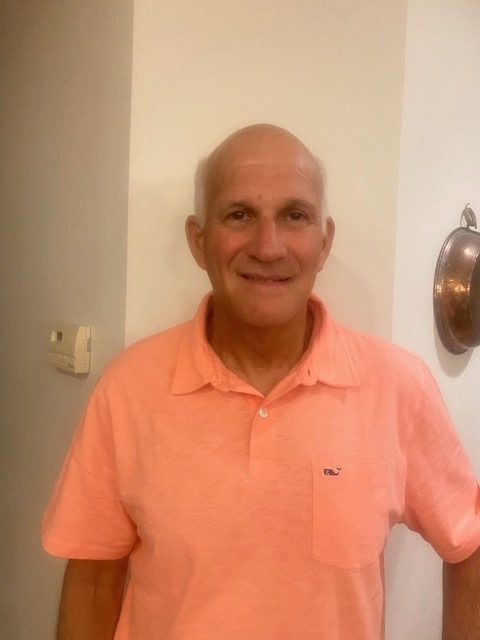Economist Steve Berger: An Austrian Analysis of Covid Vaccines

In this presentation I made at the Mises Institute, Auburn Alabama on July 27, 2023, I argue that there is a simple and elegant model that could have been applied during the Covid “Crisis.” This model would have had public health, economic, and other ancillary benefits, including defusing the politicization and polarization of society over the last three years over what should have been private and voluntary medical decisions.
That model is a TRUE free market-based one; predicated on voluntary exchanges backed up by a simple libertarian law and order ideology, in which one can obtain redress for fraud or injury.
I argue that this model is much more desirable than the current healthcare model of regulatory capture with its wide web of financial conflicts of interest in which it is unclear who is the puppet and who is the puppeteer (big pharma or public health); but it is crystal clear that patient welfare suffers unnecessarily. Under the model that I propose, vaccine manufacturers would have had to compete subject to market forces and to the threat of liability.
My view is that their products would have been close to DOA if that were the case, and competitors would have had a field day pointing out the flaws of their products.
I pointed out in my talk that I can already hear some, like Dr. Aseem Malhotra, recoil at my suggestion since he justifiably has called big pharma pathological liars and criminals; and their record of fines, both civil and criminal, certainly justifies that outrage. I share that outrage: the three things that had me skeptical from day one about the shots were the documentary “Dopesick,” my realization that the vaccine cartel had broad legal immunity; and an early podcast Dr. Naomi Wolf did with RFK Jr.
However, I note that there is no theoretical reason that Big Pharma should be pathological but for the fact that we had a captured market enforced, subsidized, and promoted by public health in an unholy alliance with pharma.
If the medical market were open, market mechanisms including the threat of liability would have been much more effective at modulating their behavior.
Also, and this is a subtle point when one suggests deregulating a market, there is a knee-jerk response that how can we trust self-regulation!! I think that is somewhat of a red herring as safety is a private good like others. If big pharma is so irredeemable that self-regulation is highly unlikely, a free market can fill the void. We have certification and independent safety monitoring businesses in other industries so why not health care?
It really boils down to a world or philosophical view: do we trust top-down bureaucratic decision-making in which there are no, or skewed, incentives (and no penalties) for ensuring safety, or do we trust the emergence of businesses certifying safety that can only make profits if they do a good job of responding to consumer/patient preferences?
Non-profit entities concerned with drug safety would also emerge and in my proposed legal order (where the government can’t compel suppression and censorship or worse); ditto, the voice of the vaccine injured.
Finally, and related to this point, any time I make an argument for a free market, an inevitable response is: “But what if company A is corrupt and sells a quack or dangerous product?”
My retort is that if human beings are imperfect, events like fraud and dishonesty will occur but at least in a truly free market, the feedback mechanisms are much more immediate: loss of business, reputational harm, bankruptcy, etc.
But in a captured market, these feedback mechanisms are suppressed.
Here, there was no blowback risk at all, and all the incentives operated in the opposite direction: denial of safety issues, the coverup of injuries, and upwards failure of public health officials.
At the very end of my talk, I point out three ways in which our Covid policies were analogous to 1928-33 in Germany, long before the iron grip of the Gestapo and the camps.
As a practical matter, I realize that this model is unattainable politically, but I believe there is virtue in setting it up as a theoretical ideal. Ie, any policy proposals moving us closer to this model would be salutary: removing financial conflicts of interest such as royalties to public health, removing pharma backing of public health in the form of user fees, repealing the childhood vaccine act and PREP liability shields, etc, and enforcing First Amendment rights by disallowing government interference with social media sites and papers. All of these move us much closer to disentangling this merger of state and corporate power.
An Austrian Analysis of Covid Vaccines
Recorded at the Mises Institute in Auburn, Alabama, on 27 July 2023.
Steven Berger graduated from Princeton University in 1976 magna cum laude with a BA in English Literature. He also received a JD from the University of Virginia Law School in 1979 and an MBA from the Tuck School at Dartmouth College in 1987. Mr. Berger is currently a private investor following a long career in the investment business, first as an investment consultant at Cambridge Associates and then as co-manager of a hedge fund-of-funds.
Berger_Mises talk 07272023



You have very elegantly provided a solution for our time. I like you.
It’s always nice to see a website I follow include work from one of my favorite places – the Mises Institute. I think I might be a month away from seeing Dr. Wolf speak at one of their conferences.!